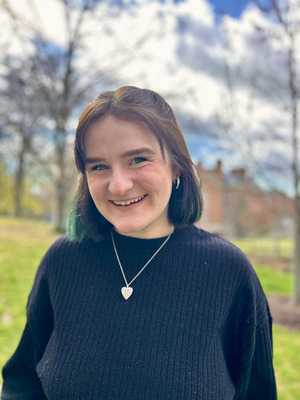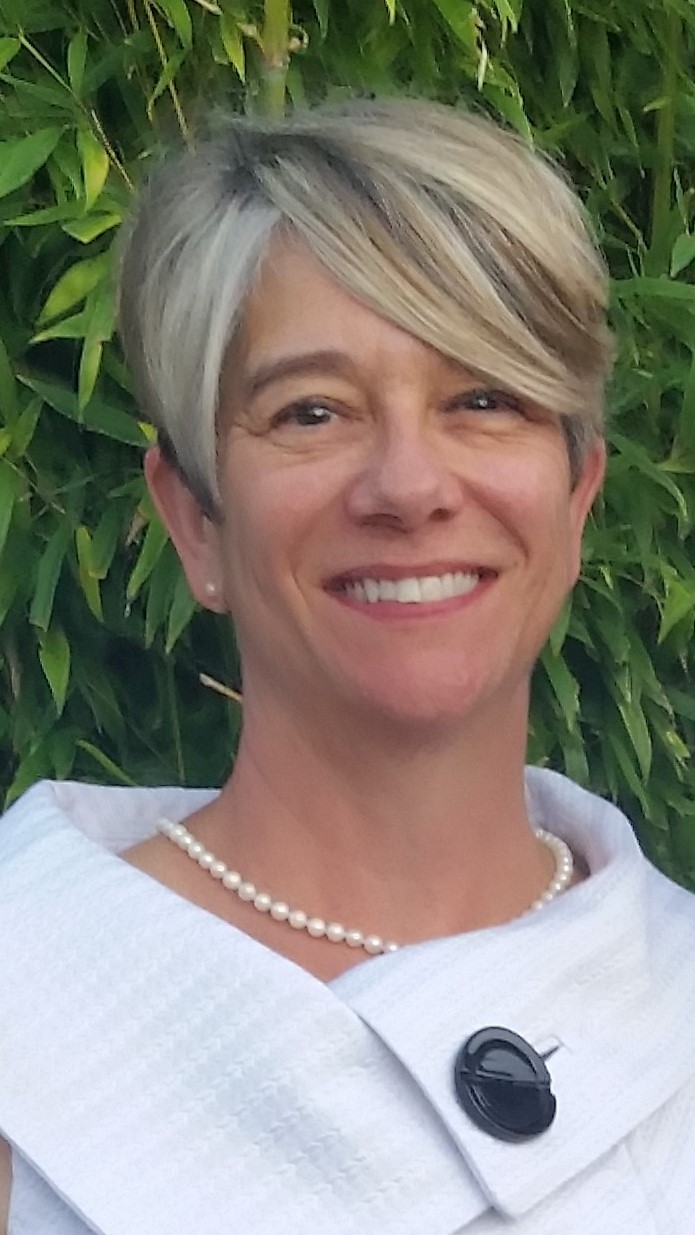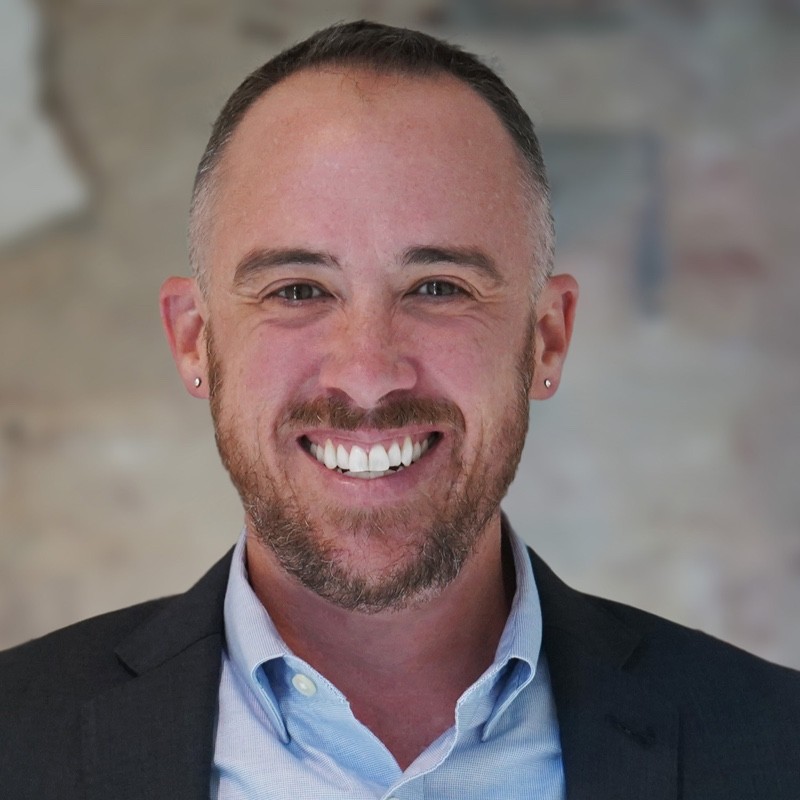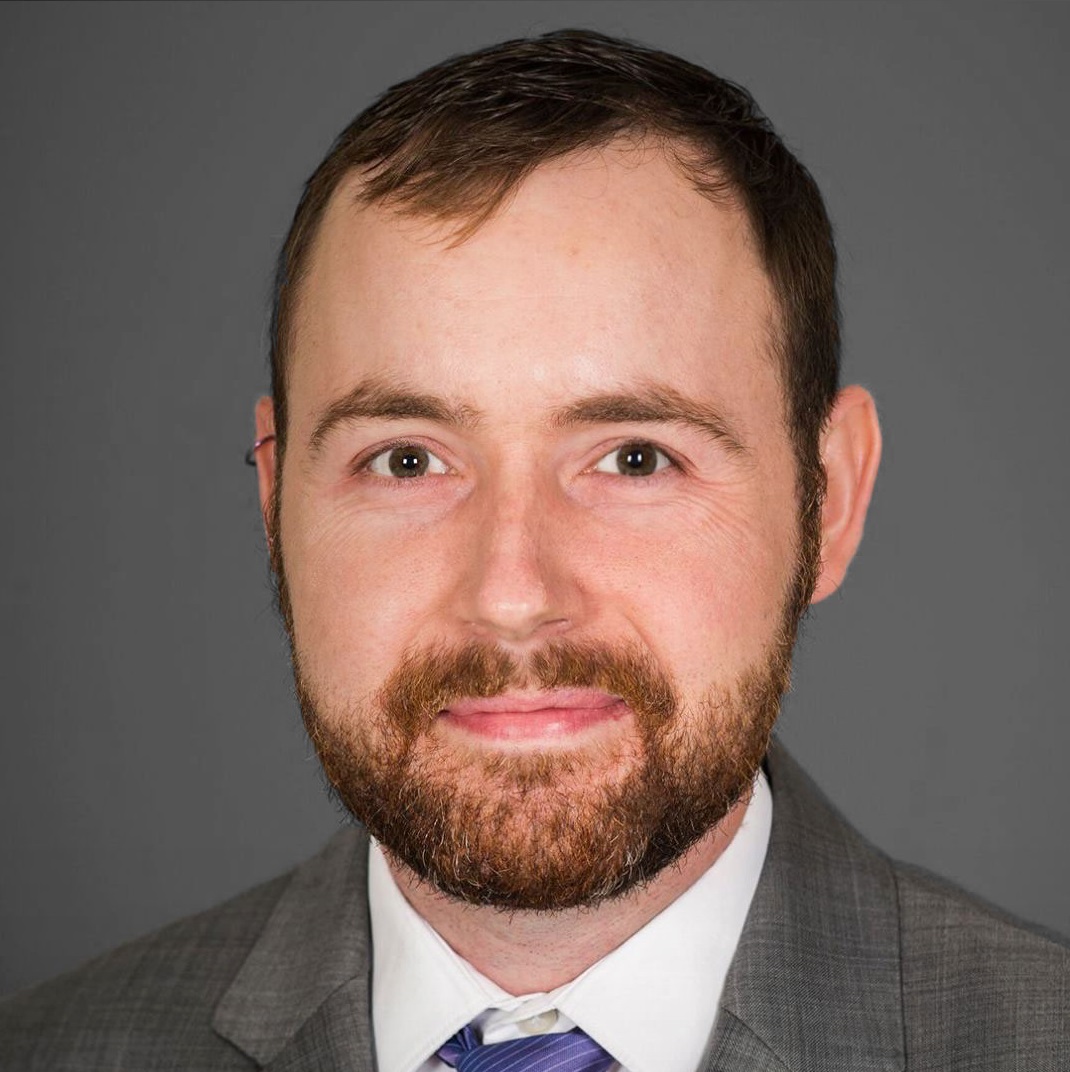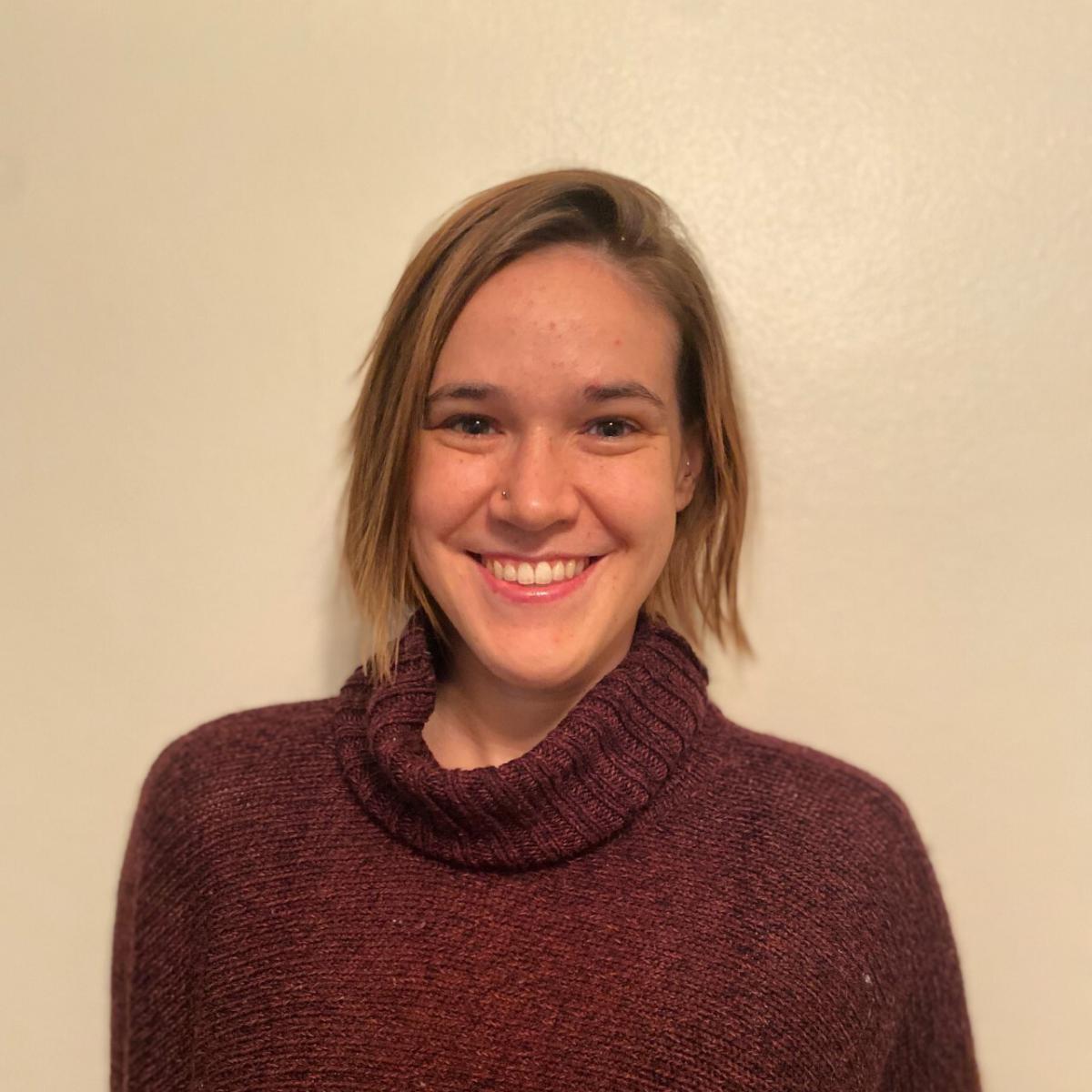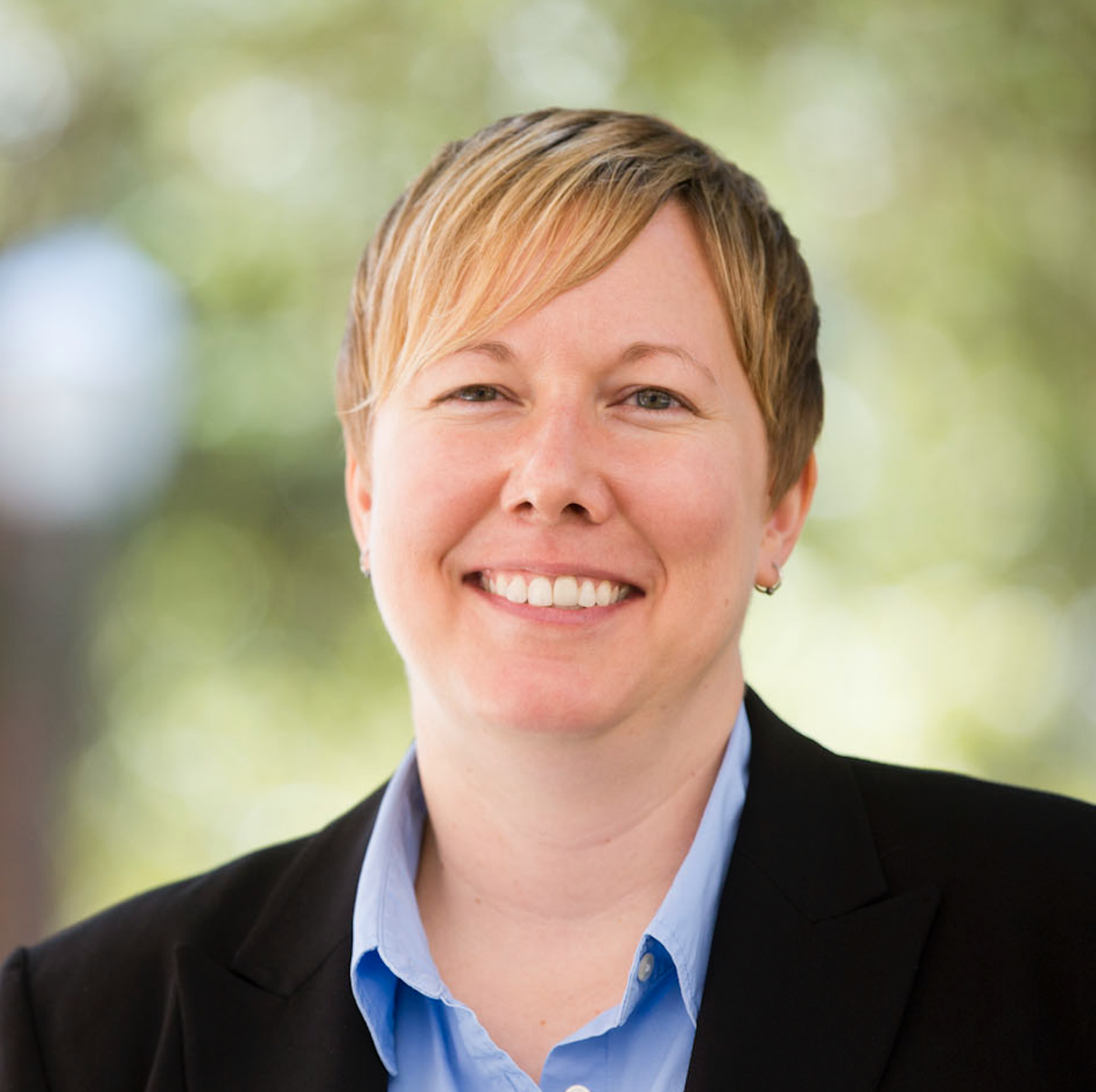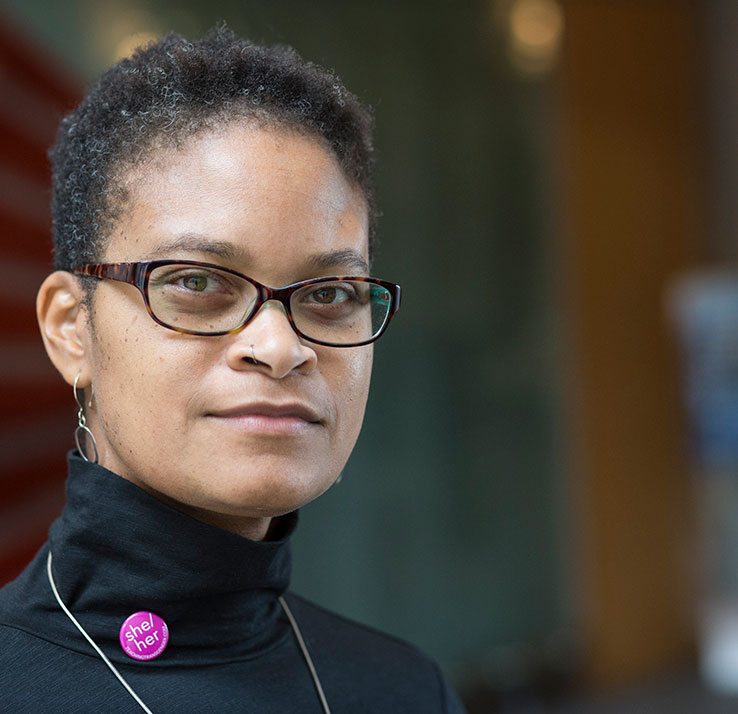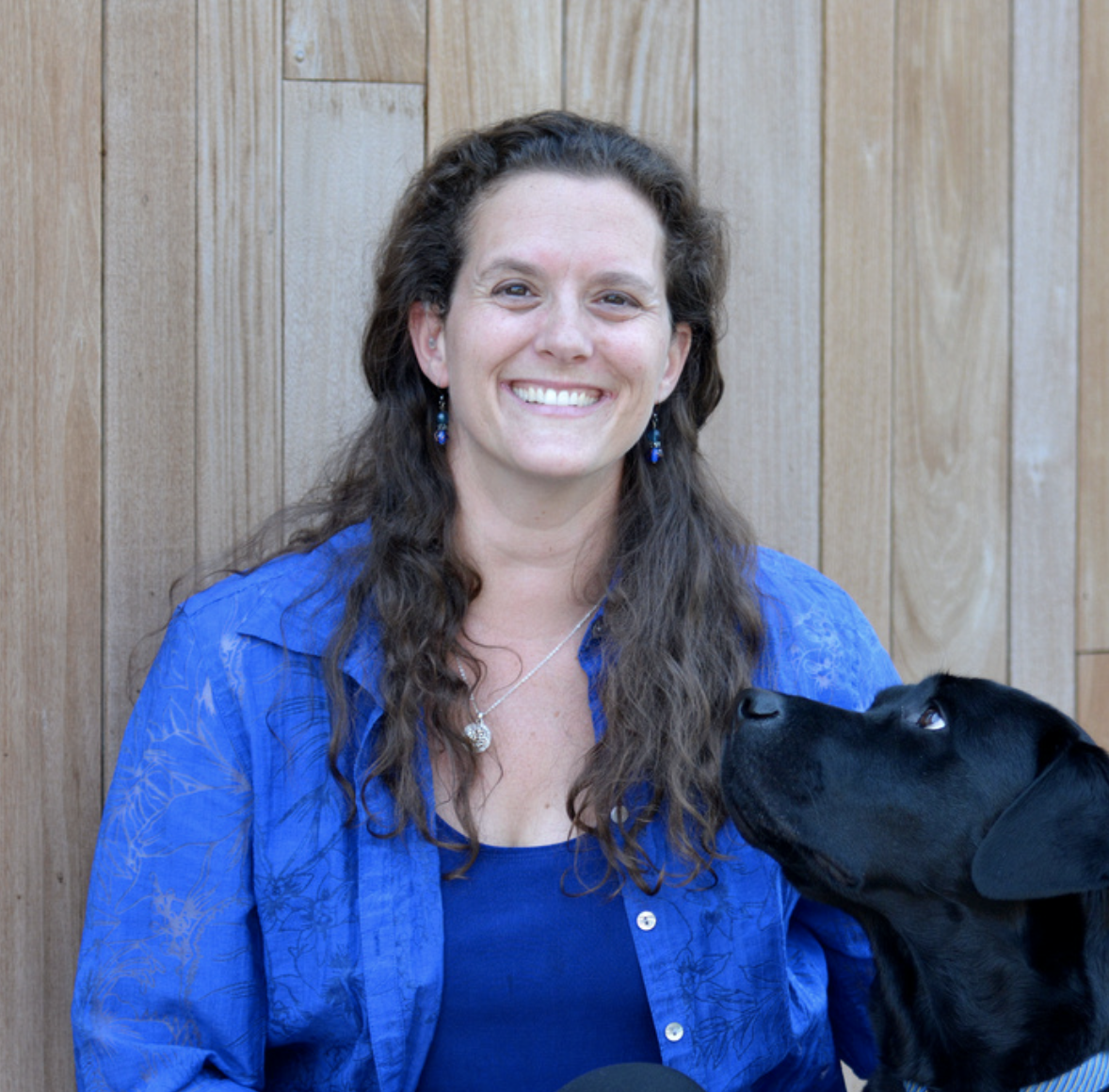Upcoming Webinar
Past Webinars
Webinar #15: How do we develop meaningful measures for SOGI?
Asking sexual orientation and gender identity on health surveys: Findings from cognitive interviews in the United States across sexual orientations and genders
Speakers:
- Anthony Pho PhD, MPH, ANP-C
- Nancy Bates, MA
- Juno Obedin-Maliver, MD, MPH, MAS
February 27, 2024 – 1 p.m. to 2 p.m. Eastern – Via Zoom Webinars
Abstract : Questions assessing sexual orientation and gender identity (SOGI) are not consistently asked on U.S.-based health surveys and, as a result, sexual and gender minority (SGM) people are often invisible, obscuring insight into their health. In this webinar, we will review findings from the first phase of a multi-phase study to inform and improve SOGI demographic measurement. In this qualitative study, we sought to explore how people across different sexual orientations and genders preferred to be asked about SOGI on U.S.-based health surveys. Using in-depth cognitive interviews with 14 non-SGM (cisgender heterosexual men and women) and 30 SGM participants (cisgender sexual minority people as well as transgender and gender diverse people of any sexual orientation), we identified four major themes relating to SOGI disclosure: (1) purpose for asking, (2) context of information collection, (3) distrust of the government, and (4) fear. We will discuss our findings and frame next steps for our research agenda to improve SOGI demographic measurement. This research was funded by the National Institute of Minority Health and Health Disparities and the NIH Sexual and Gender Minority Research Office [R21MD015878, 2020–2023].
Speaker Biographies:
|
Co-Chair, National Academy of Science and Medicine Consensus Panel Report: Measuring Sex, Gender Identity, and Sexual Orientation
|
Associate Professor of Obstetrics and Gynecology and Epidemiology and Population Health at Stanford University School of Medicines Institute & Co-Director of The PRIDE Study |
Webinar #14: Rethinking Minority Stress: A Social Safety Perspective on the Health Effects of Stigma in Sexually Diverse and Gender Diverse Populations
June 8, 2023 – 11:30 a.m. to 12:30 a.m. Eastern – Via Webex
Speakers:
- Lisa M. Diamond, Ph.D.
Event Description/Abstract:
For over two decades, the minority stress model has guided research on the health of sexually diverse individuals (those who are not exclusively heterosexual) and gender-diverse individuals (those whose gender identity/expression differs from their birth-assigned sex/gender). According to this model, the cumulative stress caused by stigma and social marginalization fosters stress-related health problems. Yet studies linking minority stress to physical health outcomes have yielded mixed results, suggesting that something is missing from our understanding of stigma and health. Social safety may be the missing piece. Social safety refers to reliable social connection, inclusion, and protection, which are core human needs that are imperiled by stigma. The absence of social safety is just as health-consequential for stigmatized individuals as the presence of minority stress, because the chronic threat vigilance fostered by insufficient safety has negative long-term effects on cognitive, emotional, and immunological functioning, even when exposure to minority stress is low. We argue that insufficient social safety is a primary cause of stigma-related health disparities and a key target for intervention.
Speaker Biography:
Lisa M. Diamond, Ph.D. Lisa M. Diamond is a Distinguished Professor of Psychology and Gender Studies at the University of Utah and president-elect of the International Academy for Sex Research. For nearly 3 decades, she has studied the development and expression of gender and sexuality across the life course. Her current work focuses on the biobehavioral mechanisms through which social stigma, social stress, and social safety shape the health and well-being of sexually diverse and gender-diverse individuals at different stages of development. Dr. Diamond is best known for her research on sexual fluidity, which describes the capacity for individuals to experience unexpected shifts in sexual identity and expression over time. Her 2008 book, Sexual Fluidity, published by Harvard University Press, has been awarded the Distinguished Book Award from the American Psychological Association’s Society for the Study of LGBTQ Issues. Dr. Diamond is also co-editor of the first-ever APA Handbook of Sexuality and Psychology, published in 2014, and is a fellow of two divisions of the APA. She has published over 140 articles and book chapters and has been invited to present her research at over 160 national and international Universities and conferences. Dr. Diamond has received awards for her work from the Developmental Psychology and LGBT Psychology Divisions of the APA, the Society for Personality and Social Psychology, the International Association for Relationship Research, the Society for the Scientific Study of Sexuality, and the Society for the Psychological Study of Social Issues. Her current work focuses on the importance of social safety (unconditional social connection, inclusion, and protection) for the human immune system, and the negative long term health implications of living with chronic unsafety in one’s day-to-day life. Dr. Diamond also studies religious trauma among sexually-diverse and gender-diverse individuals raised in the Mormon church, and the factors that promote adjustment and acceptance among this population and their families. |
Webinar #13: Identifying barriers and supports in STEM recruitment among sexual and gender minority youth and young adults
March 29, 2023 – 1:00 p.m. to 2:00 p.m. Eastern – Via Webex (Register Here)
Speaker:
- Casey D. Xavier Hall, MPH, Ph.D. (he/his)
- Luis Antonio Leyva, Ed.M., Ph.D. (he/his)
Event Description/Abstract:
Recent research has identified barriers faced by sexual and gender minority (SGM) adults in STEM higher education and professional careers. However, there is limited work focused on SGM youth, which can add insights about formative experiences that impact children’s and adolescents’ early STEM interests. Although a robust body of research has accounted for how structural racism and misogyny constrain diversity in the STEM workforce, research on SGM adults’ experiences has left unexamined how these systemic forces intersect with heteronormativity and transphobia in STEM contexts to create unique barriers of persistence and success among SGM people of color. To address these gaps in the literature, this presentation highlights findings from analyses examining STEM recruitment and retention issues among SGM youth and young adults, including anti-SGM bullying, STEM identity, perceptions of STEM climate, and STEM career intentions. The findings raise implications for transforming STEM educational and professional practices to eliminate barriers that SGM populations encounter and promote inclusion across intersections of racial, gender, and sexual identity.
Speaker Biographies:
Casey D. Xavier Hall, MPH, Ph.D. |
Luis Antonio Leyva, Ed.M., Ph.D. Assistant Professor of Mathematics Education in the Peabody College of Education & Human Development at Vanderbilt University Director of Power, Resistance & Identity in STEM Education (PRISM) Research Lab Dr. Leyva's educational research centers the voices of historically marginalized student populations in STEM, including queer and trans students of color. He examines how overlapping systems of power, including racism and cisheteropatriarchy, shape undergraduate students’ experiences of oppression and success as aspiring STEM majors. His research characterizes educational practices that disrupt oppressive learning opportunities and affirm students' intersectional identities to promote retention as well as inclusion in STEM fields. Dr. Leyva's scholarship has been published in various top-tier journals, including the American Educational Research Journal, Journal for Research in Mathematics Education, and The Journal of Higher Education. His research has received funding support from the National Science Foundation, National Academy of Education/Spencer Foundation, and Bill & Melinda Gates Foundation. |
Webinar #12: Project Resist: Community-Engaged Research to Co-design and Evaluate Tailored Anti-Smoking Messages for U.S. Young Adult Sexual Minority Women
November 28, 2022 – 1:00 p.m. to 2:00 p.m. Eastern – Via Webex
Speaker:
- Andy Tan, Ph.D.
Event Description/Abstract:
Young adult sexual minority women including lesbian and bisexual women (SMW thereafter) have elevated odds of cigarette smoking than heterosexual women and are at increased risks of smoking-related cancers and heart disease. There is limited research on the effectiveness of using LGBTQ-tailored anti-smoking campaign messages on smoking behaviors and intentions to address cigarette smoking disparities among young adult SMW. We relied on principles of the Responsive Feedback Approach and co-designed anti-smoking messages intended to reduce smoking intentions and increase quitting intentions among young adult SMW. Partnering with LGBTQ community leaders, we obtained feedback from advisors, conducted a series of message pretesting surveys and interviews with young adult SMW, and iteratively adapted the design of anti-smoking messages to be most responsive to the needs of the intended audience and future implementers of an anti-smoking campaign. We further evaluated the effects of repeated exposures to tailored anti-smoking messages created through this process on SMW’s quitting intention, cigarette purchase intention, and anti-tobacco industry perceptions using a longitudinal randomized controlled experiment among 2214 participants. This talk will focus on the message co-design process, preliminary findings of the message effects experiment, and implications for future community-engaged research in communication and health equity.
Speaker Biography:
Webinar #11: COVID, Racial Trauma, and Sexual and Gender Minorities in the US: New Evidence from the National Couples’ Health and Time Study
August 31, 2022 – 1:00 p.m. to 2:00 p.m. Eastern – Via Webex
Speakers:
- Claire Kamp Dush, Ph.D. (she/hers)
- Wendy D. Manning, Ph.D. (she/hers)
Event Description/Abstract:
In the United States, COVID-19 unfolded alongside profound racial trauma. Drawing on a population-representative sample of 20-60 year-olds who were married or cohabiting, the National Couples’ Health and Time Study (N =3,642), we examine two specific sources of stress: COVID-19 and racial trauma. We leverage the fully powered samples of respondents with racial/ethnic and sexual minority identities and find that COVID-19 and racial trauma stress were higher among individuals who were not White or heterosexual most likely due to racism, xenophobia, and cis-heterosexism at the individual and structural levels. Both COVID-19 and racial trauma stress were associated with poorer mental health outcomes even after accounting for a rich set of potential mechanistic indicators, including discrimination and social climate. We argue that the inclusion of assessments of stress is critical for understanding health and well-being among individuals impacted by systemic and interpersonal discrimination.
Speaker Biographies:
Claire Kamp Dush, Ph.D. Claire Kamp Dush (she/her) is Professor of Sociology and co-director of the Development Core at the Minnesota Population Center at the University of Minnesota Twin Cities. She is a family demographer who studies intimate relationships and their intersection with human development. She is the principal investigator of two population health data collections funded by NICHD - the National Couples' Health and Time Study (with Dr. Wendy Manning) and NIA - the third repeated cross-section of the Work and Family Life Study (with Dr. Miles Taylor). Dr. Kamp Dush is a member of the NIH CSR Social Sciences and Population Studies B study section. She is a passionate teacher and mentor who was awarded the Alumni Award for Distinguished Teaching at The Ohio State University. She enjoys reading, exercising, and spending time with her family. |
 Wendy D. Manning, Ph.D. Wendy D. Manning (she/her) is the Dr. Howard E. Aldrich and Penny Daum Aldrich Distinguished Professor of Sociology and co-director of the National Center for Family and Marriage Research at Bowling Green State University. She is a family demographer focusing on trends in family formation, dissolution, and well-being for individuals identifying as sexual minorities as well as same-gender and different-gender couples. Her research examines social relationships and the health and well-being of children, parents, and adults in the United States. She has contributed to major data collections including the seven-wave Toledo Adolescent Relationships Study and the two-wave National Couples’ Health and Time Use Study. |
Webinar #10 (Pride Month Edition): National Academies Report on Measuring Sex, Gender Identity, and Sexual Orientation
June 9, 2022 – 2:00 p.m. to 3:30 p.m. Eastern – Via Webex
Speakers:
- Kellan Baker Ph.D. (he/his)
- Nancy Bates, Ph.D. (she/hers)
- Aliya Saperstein, Ph.D. (she/hers)
Event Description/Abstract:
This will be a special Pride Month webinar, with invited speakers from the National Academies of Sciences, Engineering, and Medicine on a newly published Consensus Panel Study on Measuring Sex, Gender Identity, and Sexual Orientation. This report, commissioned by 19 components of the NIH, was developed by a multidisciplinary team of experts and reviews the current evidence base on measurement and data collection related to SGM populations. The report outlines guidelines, recommendations, and best practices for collecting sexual orientation and gender identity information in research and non-research surveys, along with medical and other administrative records, to improve the NIH’s ability to identify and address the specific needs of these populations. This presentation will be provided by members of the consensus study panel and provide an overview of the development, scope, and recommendations of the report.
Speaker Biographies:
Kellan Baker, Ph.D. |
 Nancy Bates, Ph.D. Nancy Bates is an international expert in the measurement of SOGI. She is currently working as a consultant with Stanford University on an NIH grant on SOGI measurement. Bates recently retired from the Census Bureau where she served as the senior methodologist for survey research. She oversaw and contributed to the research that formulated inclusive relationship questions resulting in the reduction of measurement error for same-sex couples in the 2020 decennial census. Bates was the co-chair of the Office of Management and Budget and the Federal Committee on Statistical Methodology SOGI research group from 2015 to 2019. She recently co-edited a Journal of Official Statistics special issue on measuring LGBT populations (2019). She served as a planning committee member for the Institute of Medicine, a national academy workshop on SOGI data collection in electronic health records (2012). Bates is also an elected fellow of the American Statistical Association. She is an accomplished researcher with over 30 peer-reviewed papers. She earned her MA in applied sociology from the University of Oklahoma. |
 Aliya Saperstein, Ph.D. Associate Professor of Sociology Aliya Saperstein received a B.A. in Sociology from the University of Washington and a Ph.D. in Sociology and Demography from the University of California-Berkeley. In 2016, she received the Early Achievement Award from the Population Association of America. She has also been a Visiting Scholar at Sciences Po and the Russell Sage Foundation. Her research focuses on the social processes through which people come to perceive, name, and deploy seemingly immutable categorical differences —such as race and sex—and how such processes create and maintain social inequality. This research has been published for social science audiences in the American Journal of Sociology, the Annual Review of Sociology, Demography, Gender & Society and Ethnic and Racial Studies, among other venues, and for general science audiences in Science, the Proceedings of the National Academy of Sciences and PLoS One. It also has been recognized with multiple article awards and gained attention from national media outlets, including NPR (twice) and The Colbert Report. |
Webinar #9: COVID-19 Health Research with and for SGM Communities
April 26, 2022 – 1 p.m. to 3 p.m. Eastern – Via Webex
Event Description:
This will be a special webinar event, cohosted by SGMRO and the NIH SGM Health SIG, that will spotlight and discuss SGM-specific COVID-19 research efforts. During this webinar, four invited panelists will present their work and will participate in a moderated panel discussion. After the discussion concludes, there will be an audience Q&A. Topics presented will include:
Presentation Abstracts:
• SGM people and COVID-19: Vulnerability, medical mistrust, and the imperative of SOGISC data collection
• The Confluence of COVID-19 and Health in U.S.-based LGBTQ+ Populations
• LITE CONNECT: Addressing testing gaps and epidemiologic disparities of COVID-19 among transgender people in the US
• COVID-19 health behaviors in a sexual minority sample: The impact of internalized stigma
SGM people and COVID-19: Vulnerability, medical mistrust, and the imperative of SOGISC data collection Sean Cahill, Ph.D. - Fenway Institute Abstract: Sexual and gender minority (SGM) people are more likely to work in front-line jobs like retail and food services, and experience higher rates of comorbid conditions and risk behaviors such as smoking and vaping. Therefore SGM people may be at elevated risk of SARS-CoV-2 infection, and complications should they become sick with COVID-19. High rates of medical mistrust and lack of access to care—especially common among sexual minority women, transgender people, and/or people of color—may interfere with vaccine uptake. More than two years into this global pandemic, there is an urgent need for the collection and use of sexual orientation, gender identity, and sex characteristics (SOGISC) data in testing, care, and vaccination to understand the impact of COVID-19 on SGM populations. I will review steps public health leaders could take to encourage SOGISC data collection and use to understand the impact of COVID-19 on SGM populations, including state-level data collection and federal data opportunities. |
The Confluence of COVID-19 and Health in U.S.-based LGBTQ+ Populations Perry N Halkitis, Ph.D., MS, MPH - Rutgers School of Public Health Abstract: Our team at the Center for Health, Identity Behavior & Prevention Studies at Rutgers School of Public Health undertook a series of studies to examine the manifestation and impact of COVID-19 in LGBTQ+ and/or HIV-seropositive populations. Our first sought to delineate the health impacts of COVID-19 in a geographically and demographically diverse sample of LGBTQ+ people in the United States after March 13, 2020, when COVID-19 was declared a national emergency including but not limited to SARS-CoV-2 exposure and testing. We collected data between May and July 2020, for adults residing in the U.S. (N=1,090) who completed an internet-based survey that assessed sexual, mental, and economic health at the onset of the COVID-19 pandemic. Findings from this study will be presented with preliminary findings from our current study of COVID-19 and other vaccination behaviors in sexual and gender minority individuals in New York and New Jersey. |
LITE CONNECT: Addressing testing gaps and epidemiologic disparities of COVID-19 among transgender people in the United States Sari L. Reisner, ScD - Harvard School of Public Health Abstract: Transgender (TG) people are an NIH-designated health disparities population with high morbidity and mortality across multiple health conditions, including HIV infection, mental health, and substance use. These conditions are a product of and exacerbated by historical and ongoing discrimination and inequities in access to healthcare. In early 2020, Severe Acute Respiratory Syndrome Coronavirus 2 (SARS-CoV-2) and Coronavirus Disease 2019 (COVID-19) were recognized as a global pandemic. To date, no data exist on COVID-19 disease in TG people. There is an urgent need to understand the burden of COVID-19 disease, investigate its impact on other health conditions and vulnerabilities burdening TG populations, and identify future public health intervention targets. The current proposal aims to fill this gap. To accomplish these goals, disparities in access to testing among TG people must be identified and mitigated. The parent LITE study enrolled a baseline sample of more than 1500 TG women in the eastern and southern U.S. to assess HIV risk across 24 months of biobehavioral follow-up using technology-enhanced, digital methods of data capture. Leveraging the LITE infrastructure and in partnership with two community-based organizations, we aim to develop LITE-CONNECT, a rapid, community-engaged mixed-methods assessment that will enroll over 2,000 TG men and women across eastern and southern U.S. The objective of this supplemental study is to characterize access and barriers to COVID-19 testing, provide access to and evaluate the use of home-based COVID-19 antibody testing to identify past infection and potential immunity, connect TG men and women to available community-based COVID-19 testing and support services, and identify community-based solutions to support access to COVID-19 testing, interventions, and care among TG people. Results from this study will be rapidly used to inform community-based efforts and a national COVID-19 response that is inclusive of TG people. The proposed research will provide critical and timely insights about COVID-19 disease in TG people in a space in which almost no information currently exists. Early identification of disparities in COVID-19 morbidity and access to COVID-19 testing and care is critical to ensuring access to services as the pandemic continues. We will leverage our existing infrastructure and community collaborations to gather new data, including unprecedented data from TG men, to guide urgently needed interventions to improve and optimize the health and wellbeing of TG people in the context of the COVID-19 pandemic. |
COVID-19 health behaviors in a sexual minority sample: The impact of internalized stigma Dr. David Solomon, Ph.D. – Western Carolina University
Abstract: COVID-19 has been identified as a public health crisis that can be avoided by preventative health behaviors such as social distancing, the use of a cloth face covering when in public, and regular handwashing or sanitizing. Although identifying predictors of preventive health behaviors related to COVID-19 is important across the general population, it may be especially pertinent in marginalized populations including sexual and gender minorities particularly due to the role of minority stress and internalized stigma in predicting health behaviors. The purpose of this study was to expand the current COVID-19 literature to investigate whether internalized stigma regarding sexual orientation and gender minority status may impact COVID-19 preventative health behaviors. For all the COVID-19 health behaviors examined, internalized stigma and gender minority status accounted for significantly more variance than predictors that were not specific to sexual or gender minority status. However, different facets of internalized sexual minority predicted varying preventative health behaviors. For instance, sexuality dissatisfaction predicted leaving home for nonessential reasons whereas belief in negative stereotypes predicted less frequent handwashing and less use of face masks and social distancing in public places. |
Speaker Biographies:
Sean Cahill, Ph.D. |
 Perry N Halkitis, PhD, MS, MPH Perry N Halkitis, Ph.D., MS, MPH is a public health psychologist, infectious disease epidemiologist, applied statistician, researcher, educator, and advocate. For three decades, the focus of his research has been on the emergence, prevention, and treatment of infectious diseases, specifically, HIV, HPV, and other sexually transmitted infections, and more recently SARS-CoV-2. His program of study has sought to disentangle the biological, behavioral, psychosocial, and structural mechanisms that predispose people and populations to these infectious diseases, and the synergies of infectious disease with mental health burdens - including drug abuse – primarily in sexual, gender, and racial, and ethnic minority populations. |
 Sari L. Reisner, ScD Dr. Sari Reisner is an assistant professor in the Department of Epidemiology at the Harvard T.H. Chan School of Public Health; assistant professor of medicine at the Harvard Medical School and Brigham and Women’s Hospital; director of transgender research at Brigham and Women’s Hospital based in the Division of Endocrinology, Diabetes, and Hypertension; and director of transgender health research at The Fenway Institute of Fenway Health, a federally qualified community health center specializing in the provision of care to sexual and gender minority LGBTQIA people in Boston, MA. Trained as a social and psychiatric epidemiologist, Reisner focuses on:(1) health disparities and inequities in lesbian, gay, bisexual, transgender, queer/questioning (LGBTQ) populations; (2) the epidemiology of HIV and other sexually transmitted infections (STIs); and (3) psychiatric epidemiology of mental health and substance use risks and resiliencies across adolescence and young adulthood. |
Dr. David Solomon, Ph.D. Assistant Professor, Department of Psychology Dr. David Solomon completed his Ph.D. in Clinical Psychology at Central Michigan University in 2017. He currently works as an assistant professor in the Department of Psychology at Western Carolina University where he teaches graduate and undergraduate courses in assessment, multicultural psychology, and introduction to clinical and counseling psychology. His research interests involve predictors of risk and resiliency in marginalized individuals, particularly sexual and gender minorities, as well as predicting outcomes for survivors of trauma. |
Webinar #8: Minority Stress and Cardiovascular Health among Sexual and Gender Minority Populations
Speaker:
- Lauren B. Beach, JD/Ph.D. (she/they) - Research Assistant Professor, Department of Medical Social Sciences and Department of Preventative Medicine, Northwestern Feinberg School of Medicine; Interim Director, Evaluation, Data Integration, and Technical Assistance (EDIT) Program, Northwestern Institute for Sexual and Gender Minority Health and Wellbeing.
February 17, 2021 – 1 p.m. to 2 p.m. Eastern – Via Webex
Abstract: Sexual and gender minority (SGM) individuals comprise a significant and growing percentage of the US population. Compared with cisgender and heterosexual populations, SGM populations have higher levels of psychosocial distress and cardiovascular disease (CVD) risk factors. Minority stress theory (MST) is a leading framework proposed to explain the wide-ranging health disparities observed among minoritized populations. MST-derived frameworks posit stigmatization at the individual, interpersonal, and structural levels contribute to SGM CVD health disparities. This presentation will employ an intersectional lens to examine associations between minority stress and cardiovascular risk factors and outcomes over the life course among SGM populations. New and forthcoming datasets to investigate CVD among SGM populations will also be highlighted.
Speaker Biography:
Dr. Lauren B. Beach investigates the epidemiology of chronic physical health conditions over the life course among diverse SGM populations and people with HIV. She also studies how multilevel health and identity-related stigmas affect chronic condition management and health outcomes of minoritized populations. They are PI of a R01 in the CARDIA cohort to characterize the cardiovascular disease epidemiology and health disparities impacting SGM populations in the CARDIA cohort study (R01HL149866). They are also a PI for Project Recognize – a project to develop novel and standardized measures of sex, sexual orientation, and gender identity (R01AA029076). Dr. Beach is also active in community-engaged, evidence-informed advocacy efforts to improve the health of bisexual populations. She is a founding Steering Committee Co-Chair of the Chicago Bisexual Health Task Force (CBHTF). She is also nationally active in bisexual health policy leadership circles and has spoken at the White House, Centers for Disease Control and Prevention, and the National Institutes of Health (NIH) to present recommendations for improving bisexual health outcomes and bisexual data collection methods. You can follow them on Twitter @laurenbbeach. |
Webinar #7: Impact of the COVID-19 Pandemic on Minoritized Youth and Young Adults in the United States
Speakers:
- Gregory Phillips II, Ph.D. (he/his) - Assistant Professor, Department of Medical Social Sciences and Preventive Medicine, Northwestern University
- Megan Ruprecht (she/her) - Research Study Coordinator, Evaluation, Data Integration, and Technical Assistance (EDIT) Program, Northwestern University
November 10, 2021 – 1 p.m. to 2 p.m. Eastern – Via Webex
Abstract: The COVID-19 pandemic has had a disproportionate impact on minoritized communities, particularly on individuals who identify as sexual/gender minorities (SGM) and/or racial/ethnic minorities. Work led by our team from 2020 highlighted disparities in testing uptake, interest in vaccination, and engagement in preventive behaviors between SGM and cisgender heterosexual adults. Further, minoritized youth and young adults (YYA) are particularly vulnerable to not just negative COVID-19 outcomes, but also negative mental health impacts due to rapidly changing school environments and potentially returning to unsafe situations with parents and guardians. As such, we launched the Youth and Young Adults COVID-19 Study, funded in August 2020 through the Rapid Acceleration of Diagnostics in Underserved Populations (RADx-UP) funding mechanism. This project contains two distinct phases: Phase 1 consists of both quantitative and qualitative data collection through a survey and in-depth interviews, while Phase 2 will begin an iterative process of developing a messaging intervention, using both data from Phase 1 and continuous input from our community partners. Launching this project involved building a broad range of partnerships to ensure diversity within our sample—our investigative team includes not just traditional academic partners but also individuals from LGBTQ+ youth-serving organizations (Centerlink and Broadway Youth Center) and an Indigenous evaluation firm (Bowman Performance Consulting). While data collection is ongoing, preliminary findings suggest high rates of both COVID-19 infection and testing within our sample. Moreover, qualitative interviews and open-ended responses revealed a paradoxical situation in which some youth experienced less stigma during the time of quarantine, whereas many experienced much more stigmatization due to being in an unaccepting home environment. Our results indicate a need for more in-depth, structural interventions to ensure YYA, particularly SGM YYA have the social and emotional support they need to mitigate increased minority stress during COVID-19. This requires a focus on interventions beyond just prevention of the illness itself to include ones that also address the broad array of stressors that impact minoritized YYA’s health and wellbeing.
Speaker Biographies:
|
|
Webinar #6: Minority Stress and Health of Transgender People: Results from NIH-funded TransPop Survey
Speakers:
- Ilan H. Meyer, Ph.D.
- Sari L. Reisner, Sc.D.
- Jody L. Herman, Ph.D.
- Tonia Poteat, Ph.D., PA-C, MPH
June 28, 2021 – 1 p.m. to 2 p.m. Eastern – Via Webex
Abstract: TransPop investigators embarked on a first-ever attempt to collect a nationally representative sample of transgender people in the United States. In this presentation, four researchers will present data from this study (www.transpop.org). The study examines a variety of health-relevant domains including basic demographic characteristics, health outcomes and health behaviors, experiences with interpersonal and institutional discrimination, identity, and transition-related experiences. In this presentation, Dr. Ilan Meyer will discuss the original recruitment methods used for this study and the accomplishments as well as challenges of using this approach to identify and collect information from transgender people. Dr. Sari Reisner will describe the sample in terms of gender and sexual orientation identities and discuss implications of the diversity of identities for research on transgender people. Dr. Jody Herman will describe select findings on the prevalence of minority stressors, including victimization and discrimination and events that occurred in childhood as well as more recently in the person’s life. Dr. Tonia Poteat will describe findings on cardiovascular disease (CVD) and reporting increased odds of CVD related to minority stressors.
Speaker Biographies:
Professor Emeritus of Sociomedical Sciences, Columbia University |
Assistant Professor, Harvard Medical School & Harvard T.H. Chan School of Public Health Research Scientist and Director of Transgender Health Research, The Fenway Institute
|
Reid Rasmussen Fellow and Scholar of Public Policy, Williams Institute |
Tonia Poteat, Ph.D., PA-C, MPH Associate Professor of Social Medicine, University of North Carolina Chapel Hill
Tonia Poteat, Ph.D., PA-C, MPH is an Associate Professor of Social Medicine at the University of North Carolina Chapel Hill (UNC), core faculty in the UNC Center for Health Equity Research, clinical preceptor for the Gender Affirming Clinic at UNC’s Student Health Action Coalition, and a Physician Assistant in the UNC Infectious Diseases Clinic. Her research, teaching, and clinical practice focus on HIV and LGBTQ health with particular attention to the health and well-being of transgender adults. Certified as an HIV Specialist by the American Academy of HIV Medicine, she is a global leader in HIV research and care with transgender persons. |
Webinar #5: Inclusion of Deaf and Hard of Hearing Sexual and Gender Minority Individuals in Research
Speakers:
- Poorna Kushalnagar, Ph.D. (she/her) - Director, Center for Deaf Health Equity, Gallaudet University
- Cara A. Miller, Ph.D., P-SEP (she/her) - Assistant Professor of Psychology, Gallaudet University
May 25, 2021 – 1 p.m. to 2 p.m. Eastern – Via Webex
Abstract: As deaf and hard of hearing (DHH) investigators engaged in sexual and gender minority research with DHH people who use American Sign Language (ASL), our main goal is to share successes and challenges associated with recruiting and retaining DHH sexual and gender minority participants in health research studies. We will share main findings specific to sexual and gender minority health and quality of life outcomes among deaf people who use ASL. Workshop objectives: 1) To review the literature on health outcomes in the deaf and hard of hearing community, 2) To parallel DHH with LGBTQ cultures/identities as these relate to patient-reported outcomes, 3) To share research challenges and suggestions for LGBTQ researchers to include DHH people in their studies, and 4) To provide strategies for health professionals who work with DHH SGM individuals.
Speaker Biographies:
|
|
Webinar #4: Intersections of Discrimination and the Prospective Mental Health of LGB Youth and Adults
Allen Mallory, PhD, Presidential Postdoctoral Scholar, The Ohio State University
March 31, 2021 – 1 p.m. to 2 p.m. Eastern – Via Webex
Abstract: Discrimination is a persistent risk factor for compromised mental health among sexual minority people. However, few studies examine the long-term implications of experiencing discrimination tied to multiple identities (e.g., race, gender, and sexual orientation) for the mental health of sexual minority youth and adults. In this talk, I will discuss the importance of intersectionality for thinking about minority stressors in diverse groups of sexual minority people, and present studies examining how discrimination tied to multiple identities was associated with the prospective mental health of sexual minority youth and adults. Three intersectional hypotheses regarding how multiple forms of discrimination intersect to impact the mental health of sexual minority people over time were tested and will be discussed: the additive, inuring, and multiplicative hypotheses. The implications of the research include thinking more deeply about how adolescence and young adulthood may be critical developmental periods when discrimination may have a stronger impact on mental well-being for sexual minority people, and future directions for research on intersectional minority stress and the health and well-being of sexual minority people.
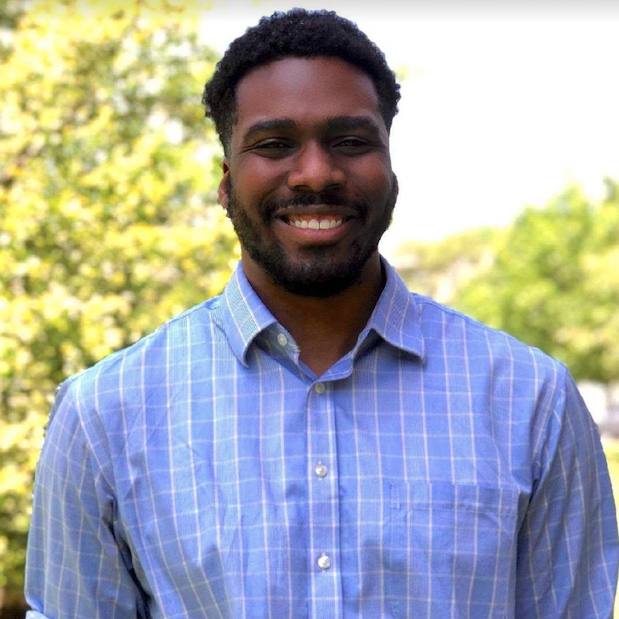 Speaker Biography: Allen Mallory is a Presidential Postdoctoral Scholar at The Ohio State University in the Department of Human Sciences. Allen received his Ph.D. from the University of Texas at Austin in Human Development and Family Sciences where he was also a trainee at the University of Texas Population Research Center. Allen’s research takes an intersectional approach in understanding the health and well-being of sexual and gender minorities. Specifically, he studies how health disparities vary among and between sexual and gender minorities across multiple marginalized identities and how the processes tied to multiple identities, such as discrimination, intersect to affect health. Dr. Mallory was funded by an F31 (F31MH115608) to investigate how race, gender, and sexual identity discrimination were independent and overlapping in their prospective associations with mental health.
Speaker Biography: Allen Mallory is a Presidential Postdoctoral Scholar at The Ohio State University in the Department of Human Sciences. Allen received his Ph.D. from the University of Texas at Austin in Human Development and Family Sciences where he was also a trainee at the University of Texas Population Research Center. Allen’s research takes an intersectional approach in understanding the health and well-being of sexual and gender minorities. Specifically, he studies how health disparities vary among and between sexual and gender minorities across multiple marginalized identities and how the processes tied to multiple identities, such as discrimination, intersect to affect health. Dr. Mallory was funded by an F31 (F31MH115608) to investigate how race, gender, and sexual identity discrimination were independent and overlapping in their prospective associations with mental health.
Webinar #3: Imaiyạchi: Transcending Historical Trauma and Living Ancestral Visions Imagined for Us - A Lecture on AI/AN Two-Spirit/SGM Health Research
Speaker: Karina L. Walters, MSW, PhD (Choctaw Nation of Oklahoma) - Professor and Katherine Chambers Hall University Scholar Co-Director, Indigenous Wellness Research Institute University of Washington, School of Social Work
December 17, 2020 – 1 p.m. to 2 p.m. Eastern – Via Webex
Abstract: American Indian community discourse suggests that historical trauma can potentially become embodied in risk behaviors and that these factors may play a significant role in present-day health inequities. Historical trauma, which consists of traumatic events targeting a community that cause catastrophic upheaval, has been posited by Native communities to have pernicious intergenerational effects through a myriad of mechanisms from biological to behavioral. Consistent with contemporary societal determinants of health approaches, the impact of historical trauma calls upon researchers to explicitly examine theoretically and empirically how these processes become embodied and identify how these factors affect the magnitude and distribution of health disparities. Moreover, consistent with our tribal systems of knowledge, it is critical that we identify health promotion approaches rooted in the strengths of our tribal knowledges and vision of life, wellness, and health held for us by our ancestors in designing health promotion interventions that are sustainable in indigenous communities. This presentation provides an overview of innovations in social epidemiological approaches to community-based intervention approaches to addressing historical trauma and transcending the trauma with a particular focus on American Indian and Alaska Native two-spirit/sexual and gender minority populations. Specifically, findings from an NIMH funded 7-site national study of Two-Spirit (LGBT) American Indians/Alaska Natives will be shared with a particular focus on examining the direct and indirect effects of historical trauma experiences on Two-Spirit mental and physical health. Methodological research challenges related to measurement and sampling will be highlighted with a particular emphasis on measuring intergenerational trauma and its effect on the present generation’s mental and physical health. After briefly describing innovations in incorporating theories of Indigenous Peoples’ health in designing and testing the historical trauma measure used in the Honor Project, this presentation will highlight theoretical innovation in creating culturally-specific health promotion models for behavioral change grounded in Indigenous ancient teachings and the vision that our ancestors held for us in transcending historical trauma.
 Speaker Biography: Karina L. Walters, an enrolled member of the Choctaw Nation of Oklahoma, is the Associate Dean for Research, the Katherine Hall Chambers Scholar, and the Co-Director and Principal Investigator of the Indigenous Wellness Research Institute (IWRI; NIMHD P60MD006909) at the University of Washington. IWRI is one of 16 National Institute of Minority Health and Health Disparities Comprehensive Centers of Excellence and one of two devoted to American Indian and Alaska Native (AIAN) research in the country. Dr. Walters has over 23 years of experience in social epidemiological research on the historical, social, and cultural determinants of health among AIAN populations as well as chronic disease prevention research (e.g., HIV, AOD, obesity). She has presented at over 350+ national and international conferences; was the first American Indian invited speaker for Wednesday Afternoon Lecture Series (WALS) at the NIH; and was a Fulbright scholar at the University of Auckland, New Zealand. Dr. Walters has served as Principal or co-Investigator on over 44 National Institute of Health (NIH) grants (22 as PI) from diverse NIH institutes, has personally mentored over 110 scholars from historically underrepresented populations including 57 AIAN scholars, and has participated in 16 national research training programs for underrepresented ethnic minority scholars. As the originator of the Indigenist Stress Coping Model, she utilizes this framework as well as decolonizing methodologies and community-based participatory approaches throughout her research endeavors. She received her B.A. (sociology) in 1987, her M.S.W. (clinical) in 1990, and her Ph.D. in 1995 all from the University of California, Los Angeles. After serving on faculty as an Assistant and Associate Professor at Columbia University School of Social Work (1995‐2001), she joined the University of Washington faculty in 2001. Prior to her career in academia, Dr. Walters practiced as a community-based psychotherapist and served as a Commissioner for the Los Angeles City/County American Indian Commission.
Speaker Biography: Karina L. Walters, an enrolled member of the Choctaw Nation of Oklahoma, is the Associate Dean for Research, the Katherine Hall Chambers Scholar, and the Co-Director and Principal Investigator of the Indigenous Wellness Research Institute (IWRI; NIMHD P60MD006909) at the University of Washington. IWRI is one of 16 National Institute of Minority Health and Health Disparities Comprehensive Centers of Excellence and one of two devoted to American Indian and Alaska Native (AIAN) research in the country. Dr. Walters has over 23 years of experience in social epidemiological research on the historical, social, and cultural determinants of health among AIAN populations as well as chronic disease prevention research (e.g., HIV, AOD, obesity). She has presented at over 350+ national and international conferences; was the first American Indian invited speaker for Wednesday Afternoon Lecture Series (WALS) at the NIH; and was a Fulbright scholar at the University of Auckland, New Zealand. Dr. Walters has served as Principal or co-Investigator on over 44 National Institute of Health (NIH) grants (22 as PI) from diverse NIH institutes, has personally mentored over 110 scholars from historically underrepresented populations including 57 AIAN scholars, and has participated in 16 national research training programs for underrepresented ethnic minority scholars. As the originator of the Indigenist Stress Coping Model, she utilizes this framework as well as decolonizing methodologies and community-based participatory approaches throughout her research endeavors. She received her B.A. (sociology) in 1987, her M.S.W. (clinical) in 1990, and her Ph.D. in 1995 all from the University of California, Los Angeles. After serving on faculty as an Assistant and Associate Professor at Columbia University School of Social Work (1995‐2001), she joined the University of Washington faculty in 2001. Prior to her career in academia, Dr. Walters practiced as a community-based psychotherapist and served as a Commissioner for the Los Angeles City/County American Indian Commission.
Webinar #2: Designing Sexual and Reproductive Health Research with and for Sexual and Gender Minority People
Speakers:
- Heidi Moseson (she/her), PhD, MPH - Epidemiologist, Ibis Reproductive Health
- Juno Obedin-Maliver (she/her), MD, MPH, MAS - Assistant Professor of Obstetrics and Gynecology, and Epidemiology and Population Health at Stanford University of School of Medicine, and Co-Director of The PRIDE Study
October 20, 2020 – 2 p.m. to 3 p.m. Eastern – Via Webex
Abstract: The ways in which we conduct research have implications for the quality of our data, and the inferences we can draw from those data. When participants feel respected, confident in and trusting of study investigators, and invested in the study topic, participants may be more likely to report complete and accurate data. One way that researchers can establish trust with participants is by designing research questions that resonate with participants' lived experiences. Sexual and reproductive health (SRH) research has done a poor job, however, of centering and including the experiences of sexual and gender minorities (SGM). As a result, much SRH research is limited by selection bias and misclassification bias that preclude a full understanding of the SRH needs and experiences of SGM people. Recognizing these potential biases and concerned about their impact on SRH data and participants, our interdisciplinary team of clinicians, researchers, and advocates set out to co-create a survey to improve the assessment of SRH experiences of SGMs. Nearly all perinatal, contraception, and abortion research to date has focused exclusively on individuals assigned female sex at birth (AFAB) who are presumed to be cisgender and heterosexual. We sought to fill in the gaps within available research and methodologies. The objective of this webinar is to describe the collaborative development of an electronic, quantitative survey co-created by interdisciplinary research and community advisory teams to improve the relevance, precision, and affirming nature of SRH research for SGMs.
Speaker Biographies:
|
|
Webinar #1: What will it take to create health equity for sexual and gender minority young people?
Brian Mustanski, PhD, Director, Northwestern Institute for Sexual and Gender Minority Health and Wellbeing
June 30, 2020 – 1 p.m. to 2 p.m. Eastern – Via Webex
Abstract: Health disparities among young people based on sexual orientation and gender identity are not going away. Recent studies have shown the size of the disparity in suicide attempts has not shrunk over the past 20+ years. HIV diagnoses have been continuing to increase among young men who have sex with men (MSM), while they decline in many other groups. In this talk, Dr. Mustanski will describe his research examining multi-level drivers of health disparities among young MSM and his program of research that uses community-engaged methods to create, test effectiveness, and now study the implementation of eHealth approaches to HIV prevention. The talk will conclude with a model of the multilevel changes that will be necessary to allow sexual and gender minority youth to have an opportunity to attain their highest level of health.
 Speaker Biography: Brian Mustanski, Ph.D. is the founding Director of the Northwestern Institute for Sexual and Gender Minority Health and Wellbeing, which has grown to be the largest LGBTQ health research institute in the US. He is a tenured Professor of Medical Social Sciences and Co-Director of the NIH Third Coast Center for AIDS Research (CFAR). His research focuses on the health and development of LGBTQ youth and the application of new media and technology to sexual health promotion and HIV prevention. He has been a Principal Investigator of nearly $60 million in federal (NIDA, NIMH, NIMHD, NIAID, NCI) and foundation grants and has published over 265 journal articles. He is a frequent advisor to federal agencies and other organizations on LGBTQ health and HIV prevention, including serving as an appointed member of the National Advisory Council on Minority Health and Health Disparities. Some recognitions for his work include being named a William T Grant Scholar and NBC News selecting him in 2017 from 1,600 nominees to their inaugural list of 30 changemakers and innovators making a positive difference in the LGBTQ community.
Speaker Biography: Brian Mustanski, Ph.D. is the founding Director of the Northwestern Institute for Sexual and Gender Minority Health and Wellbeing, which has grown to be the largest LGBTQ health research institute in the US. He is a tenured Professor of Medical Social Sciences and Co-Director of the NIH Third Coast Center for AIDS Research (CFAR). His research focuses on the health and development of LGBTQ youth and the application of new media and technology to sexual health promotion and HIV prevention. He has been a Principal Investigator of nearly $60 million in federal (NIDA, NIMH, NIMHD, NIAID, NCI) and foundation grants and has published over 265 journal articles. He is a frequent advisor to federal agencies and other organizations on LGBTQ health and HIV prevention, including serving as an appointed member of the National Advisory Council on Minority Health and Health Disparities. Some recognitions for his work include being named a William T Grant Scholar and NBC News selecting him in 2017 from 1,600 nominees to their inaugural list of 30 changemakers and innovators making a positive difference in the LGBTQ community.
About the SGMRO Scientific Webinar Series
The Sexual & Gender Minority Research Office (SGMRO) Scientific Webinar Series was launched in FY 2020 as a platform to promote research being conducted by NIH-funded investigators in the field of SGM health. This series seeks to highlight a diverse array of topics and research areas. The goals of this series are to highlight current and groundbreaking SGM health research and to provide a forum that allows students, postdocs, early-stage investigators, and others to envision a research trajectory in SGM health research.
Webinars are typically one hour in length, including 15 minutes for Q&A. Webinars are free and will be recorded and posted to the SGMRO website.
Individuals with disabilities who need Sign Language Interpreters and/or reasonable accommodation to participate in this event should contact Shyam Patel at the SGMRO (shyam.patel@nih.gov), and/or the Federal Relay (1-800-877-8339).

